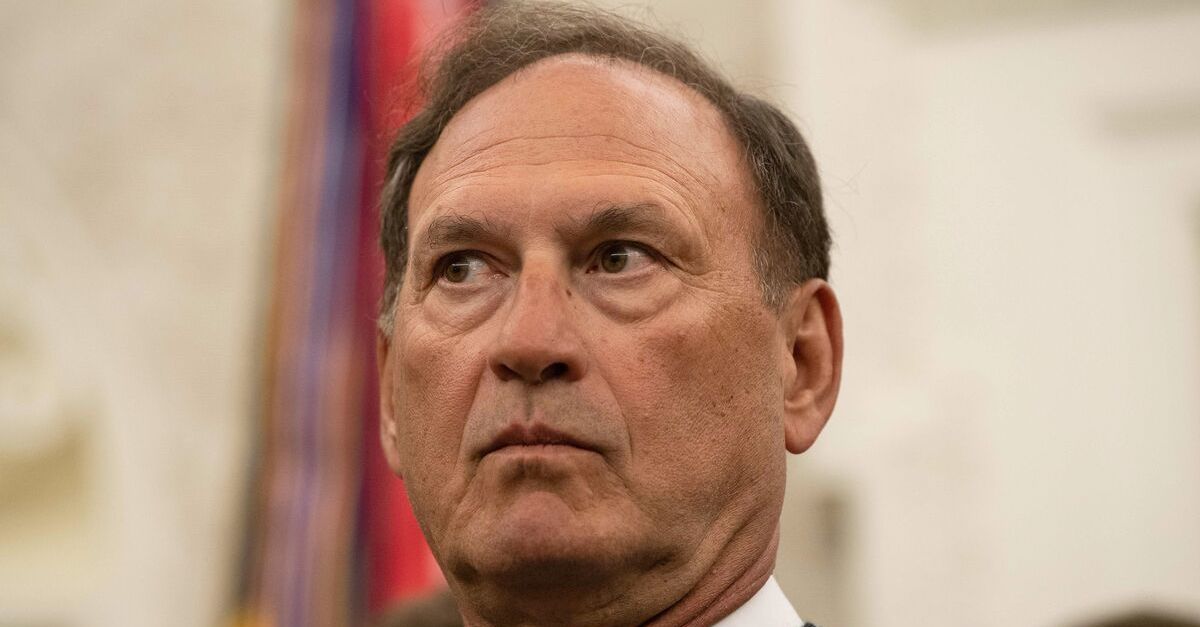
U.S. Supreme Court Justice Samuel Alito issued a characteristically strident dissent in the first of two cases concerning President Donald Trump’s tax returns and other financial records on Thursday. Some of the arguments gathered in service of his outrage, however, may have unintended consequences that don’t appear to augur well for executive power.
“[A] State’s sovereign power to enforce its criminal laws must accommodate the indispensable role that the Constitution assigns to the Presidency,” the conservative justice opined. “This must be the rule with respect to a state prosecution of a sitting President.”
In the end, of course, the high court’s ruling was a partial victory for the 45th president–in the short term at the very least. The 7-2 majority determined that a president is not entitled to absolute immunity from a state court grand jury proceeding but that they can challenge a subpoena issued on constitutional and legal grounds. Here, that means that while Manhattan District Attorney Cyrus Vance has the ability to issue the subpoena against Trump, the district attorney may not be able to enforce it–at least not immediately.
The same thing more or less happened in the second case.
Chief Justice John Roberts and six other justices, including Brett Kavanaugh and Neil Gorsuch, determined that Congress, theoretically, can request and obtain such documents from Trump but the jurists cut the legs off the investigators by declaring that the three extant subpoenas issued by various committees in the House of Representatives were almost certainly overbroad. The upshot here is the lower courts–at both the district and appellate level–will have to re-litigate the issues and subject Democratic Party demands to a more thorough form of review than previously occurred. Each decision also provides a potential roadmap, of sorts, for Trump to win outright the second time around.
But near the end of his dissent in the Vance case, Alito made a few keen observations that seriously called those would-be legal lodestars into question viz. the ultimate ruling in Mazars.
Per Alito [emphasis in original]:
The Court says that a President can “argue that compliance with a particular subpoena would impede his constitutional duties,” but under the Court’s opinions in this case and Mazars, it is not easy to see how such an argument could prevail. The Court makes clear that any stigma or damage to a President’s reputation does not count, and in Mazars, the Court states that “burdens on the President’s time and attention” are generally not of constitutional concern.’ Elsewhere in its opinion in this case, the Court takes the position that when a President’s non-official records are subpoenaed, his treatment should be little different from that of any other subpoena recipient.
“The most that the Court holds out is the possibility that there might be some unspecified extraordinary circumstances under which a President might obtain relief,” Alito continues.
In other words, the dissent has provided the president’s opponents with a tidy summary of why the president’s possible arguments against the subpoenas are limited–effectively providing Democrats their own boilerplate that refutes, or at least severely cabins, what the president is likely to argue in court and why.
The Opening Arguments legal podcast predicted just as much:
When Mazars is remanded, expect to see the House Judiciary quoting from Alito’s *dissent* in Vance.. this is a delightful own goal by the howleriest of the right-wing howler monkey contingent, Sam Alito: pic.twitter.com/HkQRtJrCxA
— Opening Arguments (@openargs) July 9, 2020
“[T]he Court touts the ability of a President to challenge a subpoena by ‘an affirmative showing of impropriety,’ including ‘bad faith’ or retaliation for official acts,” Alito continued–running through, and eventually dismissing, every single one of Roberts’s suggested avenues for Trump. “But ‘such objections are almost universally overruled.’ Direct evidence of impropriety is rarely obtainable, and it will be a challenge to make a circumstantial case unless the prosecutor is required to provide the sort of showing outlined above.”
“For all practical purposes, the Court’s decision places a sitting President in the same unenviable position as any other person whose records are subpoenaed by a grand jury,” the dissent ominously concluded.
And that, no doubt, is music to the collective ear of elected Democrats from Washington, D.C. to New York, New York.
[image via NICHOLAS KAMM/AFP via Getty Images]